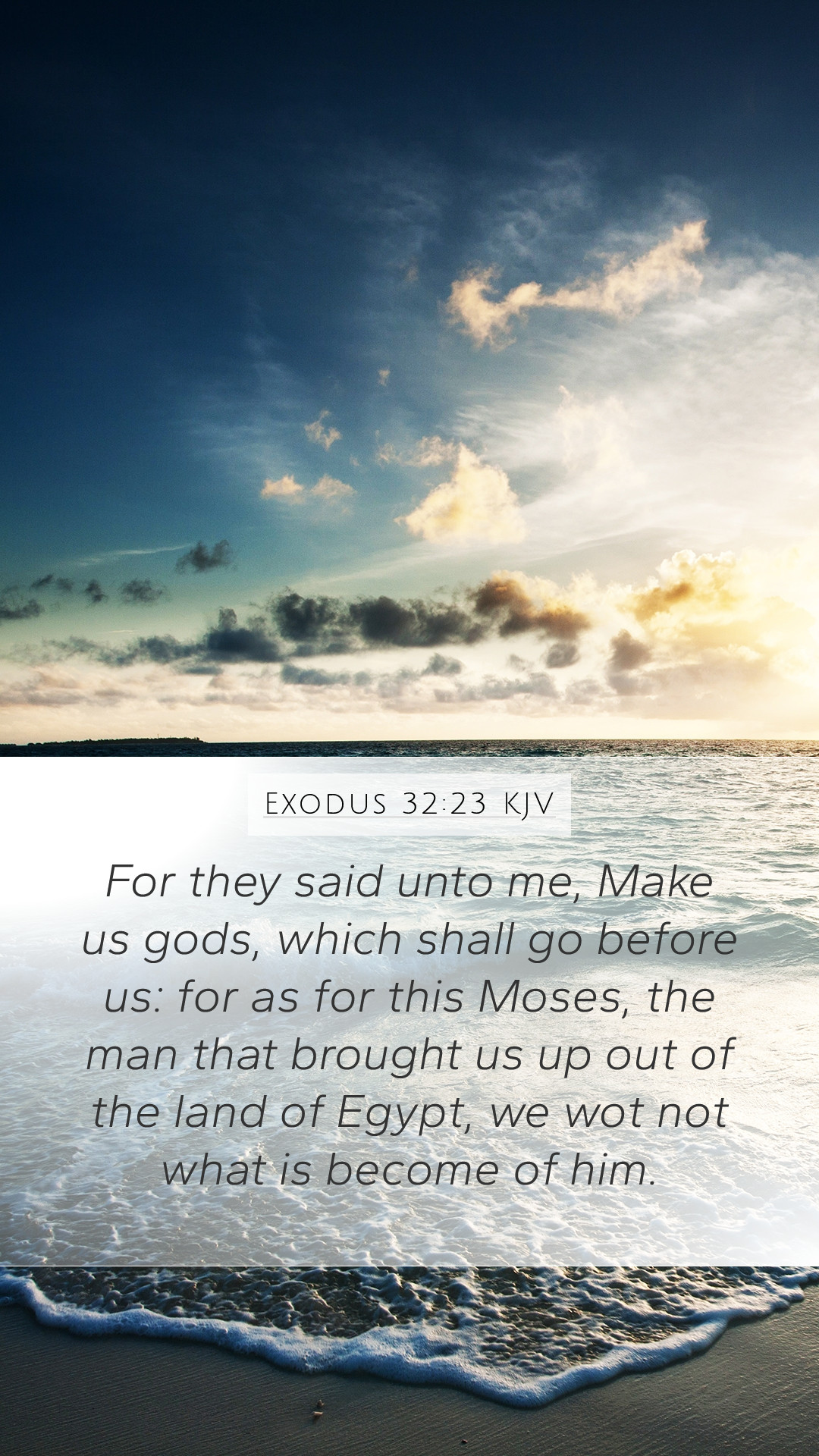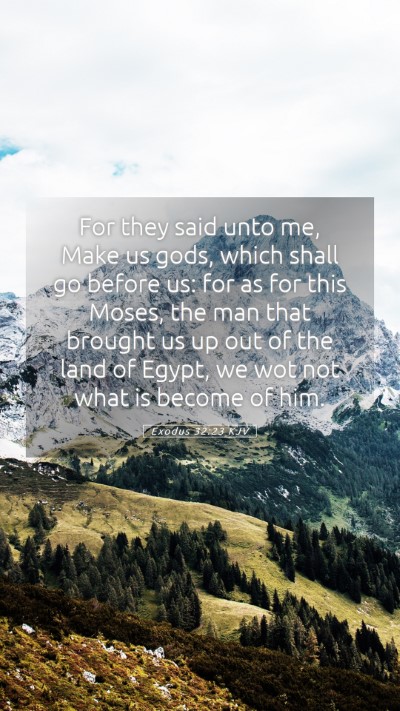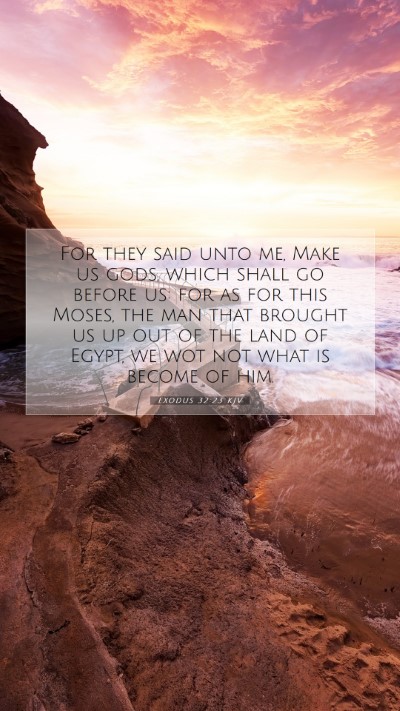Understanding Exodus 32:23
Exodus 32:23 states: "For they said to me, ‘Make us gods that shall go before us; for as for this Moses, the man who brought us up out of the land of Egypt, we do not know what has become of him.'" This verse occurs during the narrative of the Israelites' rebellion against God while Moses is on Mount Sinai receiving the Ten Commandments.
Bible Verse Meanings
In this context, the Israelites, feeling abandoned during Moses' prolonged absence, urge Aaron to construct an idol, demonstrating their lack of faith and understanding of God's presence. This act signifies a grave turning away from their covenant with God.
Bible Verse Explanations
- Public Rejection of Leadership: The people express doubt about Moses’ authority by questioning his fate, which highlights their reliance on physical manifestations rather than spiritual faith.
- Desire for Tangible Idols: This reflects humanity's intrinsic tendency to create gods to worship, showcasing the struggle between faith in the unseen and the allure of visible, tangible substitutes.
- Foreshadowing Consequences: Aaron’s compliance sets the stage for severe consequences as God’s wrath leads to devastating events—illustrating the importance of obedience to divine instruction.
Bible Verse Interpretations
According to Matthew Henry, this verse highlights the foolishness of turning to idols when experiencing uncertainty. Instead of waiting for God’s servant (Moses), the people acted in haste, leading to spiritual downfall. Albert Barnes emphasizes the dangerous precedent this sets: abandoning faith during trials may lead to idolatry—a theme prevalent throughout biblical history. Adam Clarke elaborates on the historical context, pointing out that the Israelites, fresh from slavery, were quick to revert to familiar practices of idol worship, indicating an underlying struggle with their identity and faith.
Scripture Analysis
Exodus 32:23 serves as a pivotal moment in the larger narrative of Israel's journey. It demonstrates the recurring cycle of doubt, rebellion, and the need for divine intervention. Understanding Scripture in this light unveils the heart's inclination toward sinful behaviors, especially in challenging circumstances.
Key Themes
- The Nature of Leadership: The verse puts forward implications about the responsibilities of spiritual leaders in guiding their people and the potential pitfalls when they falter.
- Faith versus Sight: The people's request reflects a broader human tendency where faith is often challenged by the absence of physical evidence.
- Idolatry's Consequences: The serious repercussions faced by the Israelites after this episode serve as a warning against the allure of idolatry and the importance of fidelity to God's commandments.
Bible Study Insights
This verse enhances Bible study insights by prompting introspection about what “idols” we might create in our lives during times of uncertainty. It challenges readers to reflect on their faith in God's continuous presence and guidance.
Cross References
- Exodus 20:4-5: God's commandments concerning the prohibition of idols.
- 1 Corinthians 10:7: Paul warns against being idolaters, referencing Israel's actions.
- Hebrews 11:1: Faith in the unseen is emphasized, countering the actions of the Israelites.
- Psalm 106:19-21: Reflects on Israel’s worship of the golden calf in greater narrative detail.
- Acts 7:40-41: Stephen recounts this event, emphasizing the disobedience of the Israelites.
Application of Biblical Teachings
Understanding this verse impacts congregational discussions in Bible study groups as it unveils lessons about trust and faithfulness. It challenges believers to avoid creating modern-day idols, such as materialism or social pressures, especially during trials.
Conclusion
The final takeaway from Exodus 32:23 is a call to remain steadfast in faith even amidst uncertainty, reinforcing the lesson that true leadership and dedication to God is born out of patience and clarity rather than haste and confusion. As we engage in online Bible study or use various Bible study tools, let this verse serve as both a cautionary tale and a profound reminder of our spiritual obligations to God.


